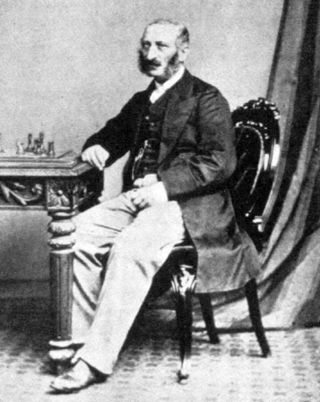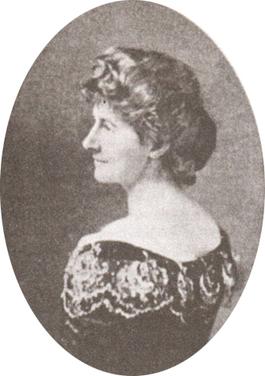See also
- Morphe Cosmetics, American cosmetic retailer
- Morphine, pain medication of the opiate family
Paul Morphy was an American chess player, considered an unofficial world champion in the late 1850s.
Morphy may also refer to:

Paul Charles Morphy was an American chess player. Living before chess had a formal world championship, he was widely acknowledged to be the greatest chess master of his era. He won the tournament of the First American Chess Congress of 1857, winning matches with each opponent by lopsided margins. He then traveled to England and France to challenge the leading players of Europe. He played formal and informal matches with most of the leading English and French players, and others including Adolf Anderssen of Germany, again winning all matches by large margins. He then returned to the United States, and before long abandoned competitive chess. A chess prodigy, he was called "The Pride and Sorrow of Chess" because he had a brilliant chess career but retired from the game while still young. Commentators agree that he was far ahead of his time as a chess player, though there is disagreement on how his play ranks compared to modern players.

Howard Staunton was an English chess master who is generally regarded as the world's strongest player from 1843 to 1851, largely as a result of his 1843 victory over Pierre Charles Fournier de Saint-Amant. He promoted a chess set of clearly distinguishable pieces of standardised shape – the Staunton pattern promulgated by Nathaniel Cooke – that is still the style required for competitions. He was the principal organiser of the first international chess tournament in 1851, which made England the world's leading chess centre and caused Adolf Anderssen to be recognised as the world's strongest player.
Louisa may refer to:
Paul Murphy may refer to:

Johann Jacob Löwenthal was a professional chess master. He was among the top 3 players of the 1850s.

Jules Arnous de Rivière was the strongest French chess player from the late 1850s through the late 1870s. He is best known today for playing many games with Paul Morphy when the American champion visited Paris in 1858 and 1863.
Mary Herbert may refer to:
Mabel is an English female given name derived from the Latin amabilis, "lovable, dear".
Gunning or Gunnin' can refer to:
Grey is a surname. It may refer to:
Elizabeth Butler may refer to:
Irwin is an Irish, Scottish, and English surname stemming from the surname Eoforwine, a combination of the Old English words for boar and friend. Notable people with the surname include:
Hester is both a female given name and a surname. As a given name Hester is a variant of Esther. As a surname it is of Germanic origin and uncertain meaning, possible roots being the Middle High German heister beech tree indicating residence near a beech tree, or a shared root with the modern German heißen to call indicating the profession of herald or town crier. In Ireland, particularly County Mayo, the surname Hester is found as an Anglicized form of the Gaelic Ó hOistir descendant of Oistir.

Florence Rose Bligh, Countess of Darnley, DBE was the Australian-born wife of Ivo Bligh, 8th Earl of Darnley.
Hastings is a surname of English and Irish origin, and is used also as a given name.
The Staunton–Morphy controversy concerns the failure of negotiations in 1858 for a chess match between Howard Staunton and Paul Morphy and later interpretations of the actions of the two players. The details of the events are not universally agreed, and accounts and interpretations often show strong national bias.
Dorothea, also spelt Dorothee (German), Dorothée (French), and Dorotea, is a female given name from Greek Δωροθέα (Dōrothéa) meaning "god's gift". In English it more commonly spelt Dorothy.
Frances is a French and English given name of Latin origin. In Latin the meaning of the name Frances is 'from France' or 'free one.' The male version of the name in English is Francis. The original Franciscus, meaning "Frenchman", comes from the Franks who were named for the francisca, the axe they used in battle.
Marcelle Azra Hincks, known by the pen name Countess Morphy, was an American-British food writer, dance critic, and cookery demonstrator, famed for her book on world gastronomy.

Charles Amédée de Maurian, also known as Charles Amédée Maurian, was an American amateur chess player and close personal friend of Paul Morphy.